Top 10 Foods Lowest in Potassium For People with Kidney Disease
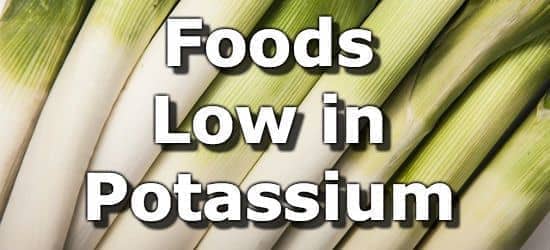
The kidneys regulate potassium (and all electrolyte) levels in your body. For those diagnosed with chronic kidney disease (CKD) you may have to limit consumption of potassium and other electrolytes. (2)
The list below serves as a suggestion of low potassium foods for your diet and is for informational purposes only. Please work with your primary care provider to establish a proper diet.
Note: The current daily value (DV) for potassium is 4700 milligrams (mg), recently raised from 3500mg by the FDA. (1) This is a target meant for healthy people and is the %DV you will see on product labels in the United States. People with kidney disease should eat less potassium. Please use the percent daily value in this article only as a guide to compare foods and not as a target!
Generally people with CKD should watch their protein intake, as well as intake of other electrolytes. Since other electrolytes should also be watched, the amounts of sodium, phosphorus, magnesium, and calcium are also listed below each food in this list.
Foods low in potassium include most refined fats and oils, grains like cornmeal, white rice, and pasta, cheeses like soft goat cheese, and blueberries, eggs, leeks, Napa cabbage, and chia seeds. Boiling vegetables in water and discarding the water can help reduce their potassium and electrolyte content. Further, you can also leech more minerals out by soaking vegetables in water before consumption.
For more information on a CKD diet see the article from Medline Plus and Kidney.org. For more low potassium food ideas see the nutrient ranking tool, nutrient ratio tool, and the list of low potassium vegetables.
-
 1. Refined Oils (Flaxseed Oil)
1. Refined Oils (Flaxseed Oil)
Potassium
per TblspPotassium
per 100gPotassium
per 200 Calories0mg
(0% DV)0mg
(0% DV)0mg
(0% DV)1 tbsp of cold pressed flaxseed oil contains 0mg of sodium, 0mg phosphorus, 0mg magnesium, and 0mg calcium.
See all fats and oils low in potassium.
-
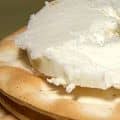 2. Soft Goat Cheese
2. Soft Goat Cheese
Potassium
per OzPotassium
per 100gPotassium
per 200 Calories7mg
(0% DV)26mg
(1% DV)20mg
(0% DV)1 oz of soft goat cheese contains 130mg of sodium, 73mg phosphorus, 5mg magnesium, and 40mg calcium.
See the ranking of all dairy foods low in potassium.
-
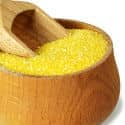 3. Cornmeal (Grits)
3. Cornmeal (Grits)
Potassium
per Cup CookedPotassium
per 100gPotassium
per 200 Calories51mg
(1% DV)22mg
(0% DV)68mg
(1% DV)1 cup of cornmeal contains 5mg of sodium, 33mg phosphorus, 12mg magnesium, and 2mg calcium. *Amount of Potassium and other minerals will depend on the water used for cooking.
See all grains low in potassium.
-
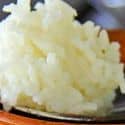 4. White Rice
4. White Rice
Potassium
per Cup CookedPotassium
per 100gPotassium
per 200 Calories55mg
(1% DV)35mg
(1% DV)54mg
(1% DV)1 cup of rice contains 2mg of sodium, 68mg phosphorus, 19mg magnesium, and 16mg calcium. *Amount of Potassium and other minerals will depend on the water used for cooking.
See all grains low in potassium.
-
 5. Eggs
5. Eggs
Potassium
in 1 Large EggPotassium
per 100gPotassium
per 200 Calories63mg
(1% DV)126mg
(3% DV)163mg
(3% DV)1 large egg contains 62mg of sodium, 86mg phosphorus, 5mg magnesium, and 25mg calcium.
-
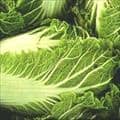 6. Napa Cabbage (Boiled and Drained)
6. Napa Cabbage (Boiled and Drained)
Potassium
per Cup CookedPotassium
per 100gPotassium
per 200 Calories95mg
(2% DV)87mg
(2% DV)1450mg
(31% DV)1 cup of boiled and drained Napa cabbage contains 12mg of sodium, 21mg phosphorus, 9mg magnesium, and 32mg calcium.
Boiling and draining the water of vegetables will help reduce the potassium and mineral content.
Few vegetables are low in potassium, but you can see the ranking of all vegetables low in potassium.
-
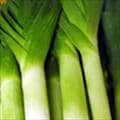 7. Leeks (Boiled and Drained)
7. Leeks (Boiled and Drained)
Potassium
per LeekPotassium
per 100gPotassium
per 200 Calories108mg
(2% DV)87mg
(2% DV)561mg
(12% DV)An average leek (boiled and drained) contains 12mg sodium, 21mg phosphorus, 17mg magnesium, and 37mg calcium.
Boiling and draining the water of vegetables will help reduce the potassium and mineral content.
Few vegetables are low in potassium, but you can see the ranking of all vegetables low in potassium.
-
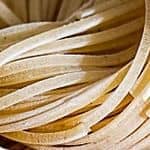 8. Whole Wheat Pasta
8. Whole Wheat Pasta
Potassium
per CupPotassium
per 100gPotassium
per 200 Calories112mg
(2% DV)96mg
(2% DV)129mg
(3% DV)1 cup of whole wheat pasta contains 5mg of sodium, 149mg phosphorus, 63mg magnesium, and 15mg calcium.
*Amount of Potassium and other minerals will depend on the water used for cooking.
See all grains low in potassium.
-
9. Blueberries
Potassium
per CupPotassium
per 100gPotassium
per 200 Calories114mg
(2% DV)77mg
(2% DV)270mg
(6% DV)1 cup of raw blueberries contains 2mg of sodium, 18mg phosphorus, 9mg magnesium, and 9mg calcium.
Few fruits are low in potassium, but you can see the complete ranking of fruits low in potassium.
-
 10. Chia Seeds
10. Chia Seeds
Potassium
per oz(~2 Tblsp)Potassium
per 100gPotassium
per 200 Calories116mg
(2% DV)407mg
(9% DV)167mg
(4% DV)1 oz (~2 tablespoons) of chia seeds contains 5mg of sodium, 244mg of phosphorus, 95mg of magnesium, and 179mg of calcium.
Nuts and seeds are high in most minerals, but you can still see the ranking of nuts and seeds low in potassium.
From the Nutrient Ranking Tool
Use the ranking tool links below to select foods and create your own food list to share or print.
- Foods High in Potassium
- Foods Low in Potassium
- Vegetables High in Potassium
- Fruits High in Potassium
- Vegetarian Foods High in Potassium
- Nuts High in Potassium
- Grains High in Potassium
- Beans High in Potassium
- Dairy High in Potassium
- Breakfast Cereals High in Potassium
- Fast Foods High in Potassium
View more nutrients with the nutrient ranking tool, or see ratios with the nutrient ratio tool.
Related
Data Sources and References
Try the recipe nutrition calculator, or daily meal planner.
Create a free account to log and track foods.

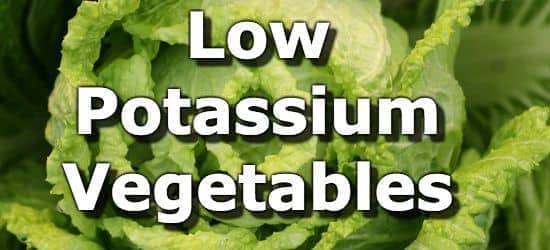 Next ➞
Next ➞